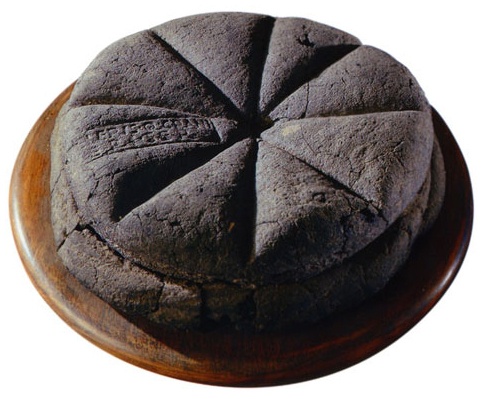Christ spoke: "This is the bread which cometh down from heaven, that a man may eat thereof, and not die."
John 6:50
What is the meaning of this utterance? What is the significance of bread and wine as spoken by Christ in the Gospels?
adrian009,
When Jesus said what he said in John 6:50 about bing bread from heaven, was telling about what was going to happen to him,
He was going to be killed by the Jewish religious leaders, and be resurrected, then 50 days later he would send down from heaven the Holy Spirit that he promised, which would strengthen the disciples and help them to understand all the things he had said to them, Acts 1:7,8, John 14:26.
Remember, on the night before Jesus was killed, he had The Lords Evening Meal, or Lords Supper, where he had his Apostles, after the meal, eat pies fo bread and drink wine, which he said was representing his body and blood, Like 22:14-20. Jesus death was the beginning of The New Covenant, which would Superceded The Mosaic Law Covenant, Luke 22:20, Matthew 26:26-29, 1Corinthians 11:23-26, where here Jesus told his Apostles that his cp of wine was The New Covenant, and that they should keep celebrating the The Lords Supper Every year until he comes back, Verse 26.
More aboutThe New Covenant taking the place of the Old Mosaic Law Covenant is recorded at Hebrews 8:5-13.
The date of The Last Supper was Nisan 14, of the Jewish calender, and is a different day every year, somewhere between the last few days of March, and the first few days of April. The actual date is, the first full Moon, after the Spring Equinox.
After the death of Jesus, no one, not even the Jews were underThe Mosaic Law, and no Gentile was ever under the Mosaic Law, except for Proselytes, who were Gentiles who lived under the same laws as the Jews.
This New Covenant was much better than the Old Law, because it was based on the blood of Jesus, not on animal blood, which could not make anyone perfect, while Jesus’ blood could, Hebrews 9:11-15, 10:1-18. Meditate on these Scriptures, because understanding these things can mean everlasting life to all who believe in and follow Jesus Christ, 1Peter 2:21.
Agape!!!

